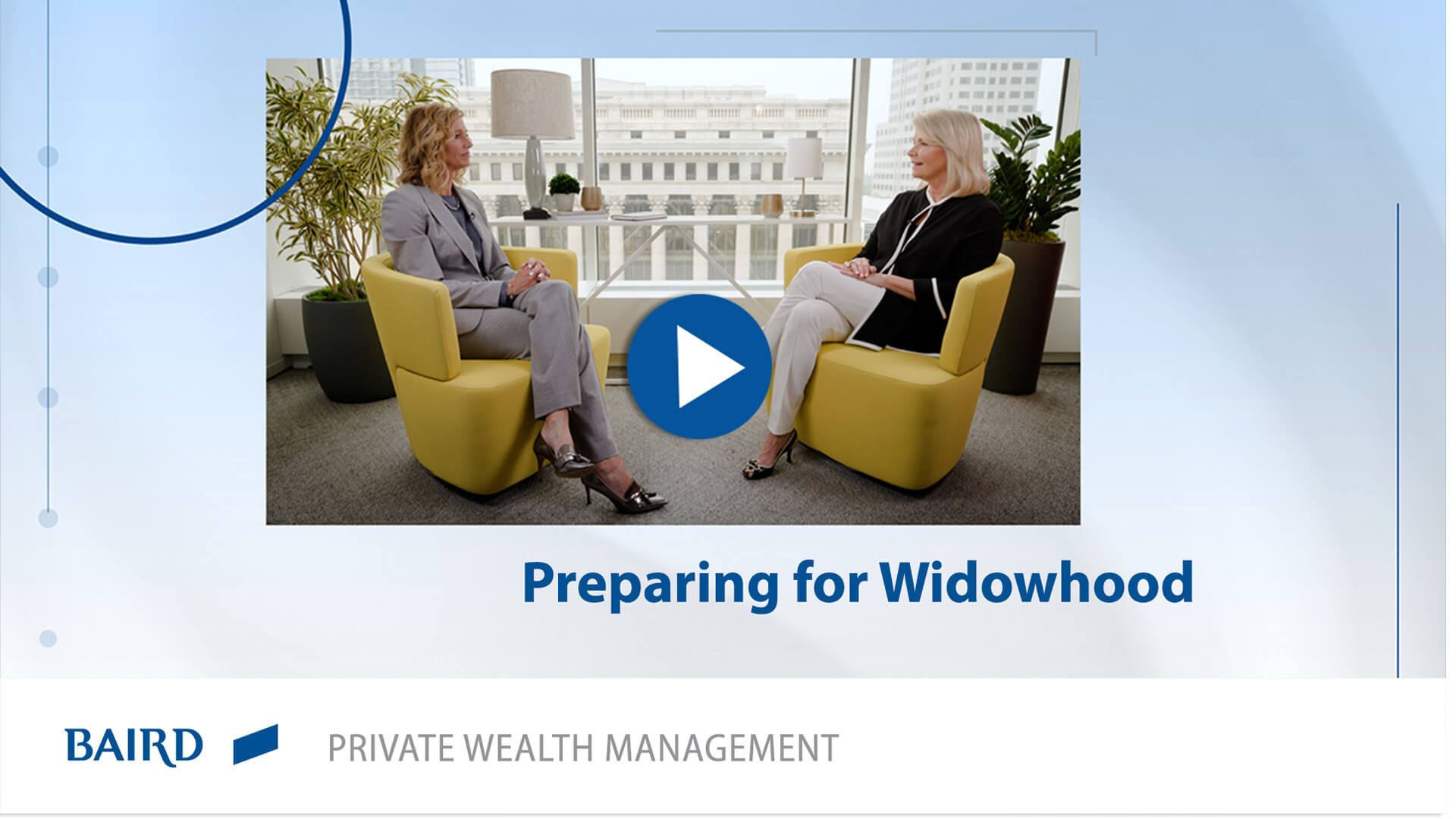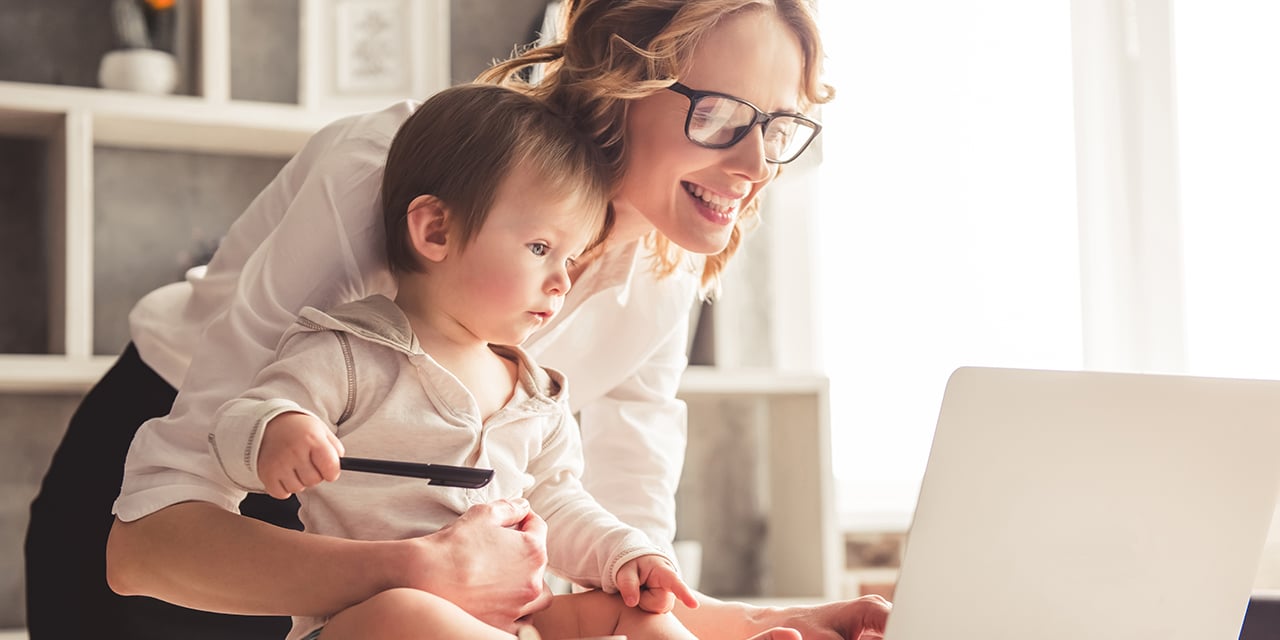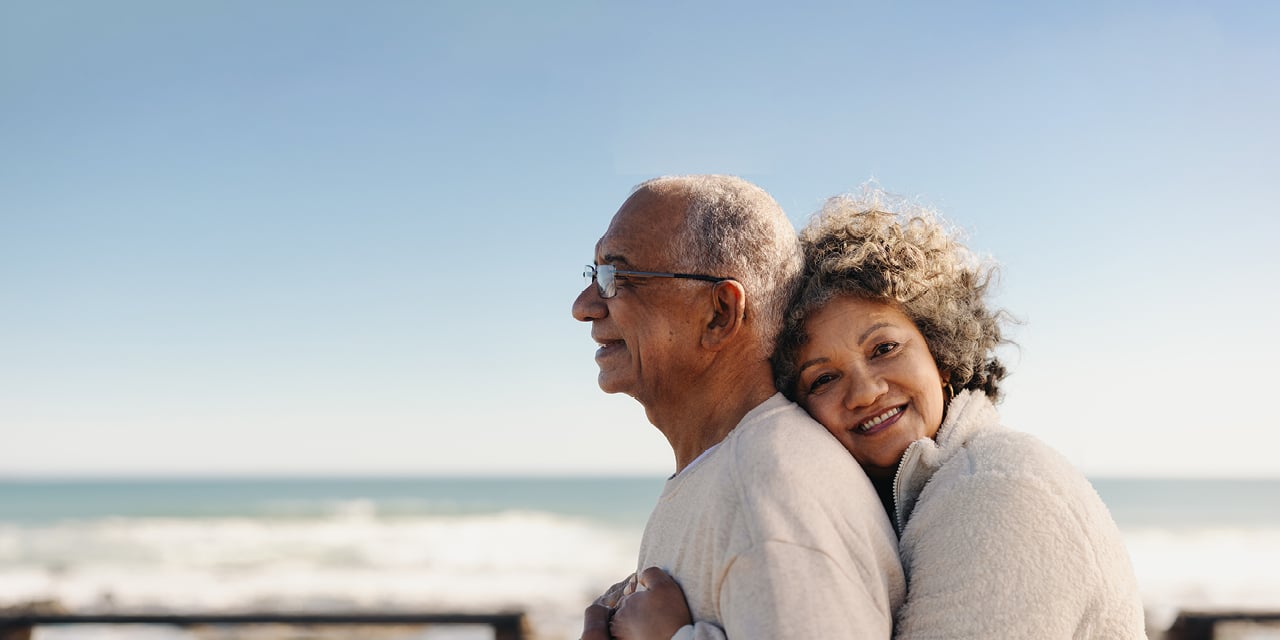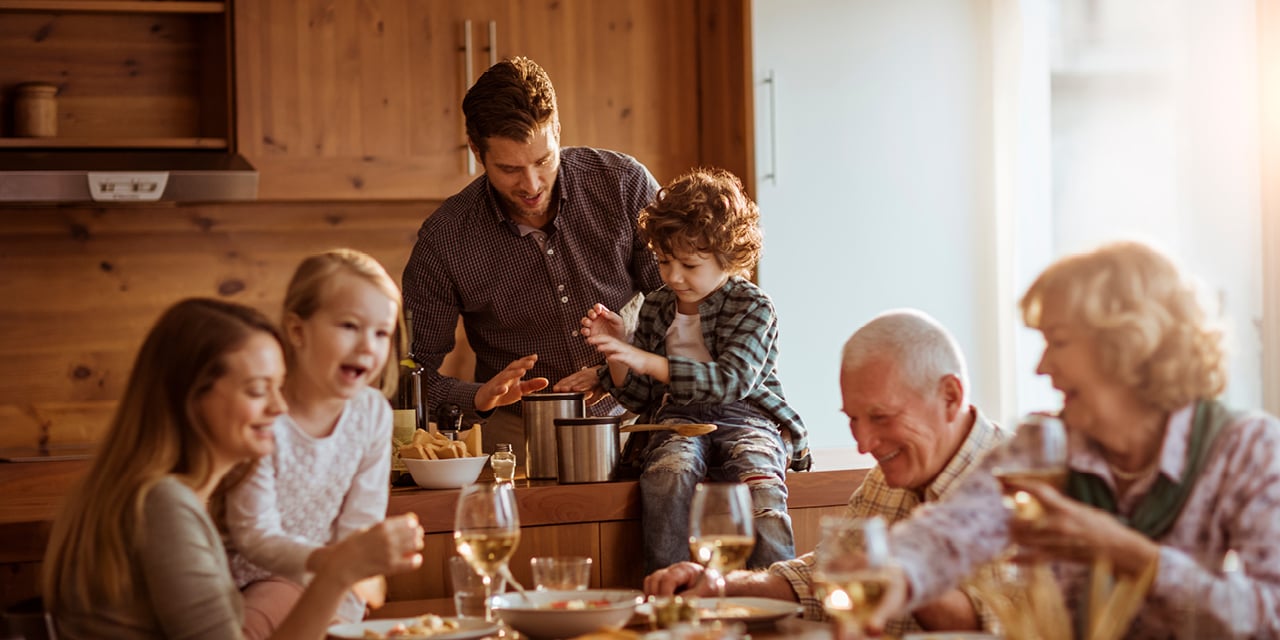
The Reality Behind Widowhood
Widowhood can happen sooner than families anticipate – so the time to prepare is now.
Watch "Preparing for Widowhood" on YouTube >
It’s commonly understood that women on average live longer than men – but the age at which a woman loses her spouse is younger than most people realize. We sat down with Baird Trust’s Jackie Russell and Baird Family Wealth’s Jaleigh White to discuss the common misconceptions around widowhood – and what women can do now to prepare for the likelihood of living alone.
The average age of widowhood is younger than many people expect.
For many people, the term “widow” evokes a woman later in life – but that picture isn’t fully accurate. While it’s true more than half of all women over age 75 are widowed, the U.S. Census also reports that the average age of widowhood for women is only 59 years old – an age when many couples are working and still expecting to draw an income from an employer. As Baird Trust Officer Jackie Russell points out, many widows are caught off-guard from the death of a spouse, and often find themselves financially unprepared to suddenly have lost half the family income or access to a spouse’s pension or Social Security benefits.
The impact and responsibilities of widowhood are far-reaching.
Upon the death of a spouse, widows are often in a vulnerable state, having to balance their own personal grief against the unfamiliar world of collecting life insurance benefits, planning a funeral or arranging a memorial service. But while making these final arrangements might be the immediate priority, they are not the only concerns that need to be addressed. Bills still need to be paid, the home still needs to be maintained – and all the tasks associated with daily life now fall on the surviving spouse. Jackie Russell notes, “We know in our lives as couples, we divide and conquer activities of daily living. When the entirety of those responsibilities falls solely and suddenly on a surviving spouse, that can lead to an incredible amount of stress, making an already difficult time that much harder.”
Carve out time now, and it will pay dividends ten times over when you need it the most.
You don’t have to do it all yourself.
The process of moving forward financially can be both overwhelming and time-consuming – gathering your assets, modeling what-if scenarios, exploring how the death of a spouse might affect decisions surrounding your lifestyle, retirement and long-term care can be physically and emotionally taxing. But you don’t have to figure this all out on your own. In addition to the expertise your Baird Financial Advisor has in financial planning and wealth management, they also have access to specialists like Jackie and Jaleigh – experts who have dedicated their careers to helping women and families pursue their best lives.
There’s much more to Jackie’s and Jaleigh’s perspectives on widowhood – including Jaleigh’s experiences guiding business owners through loss and Jackie’s personal experience helping families through widowhood.




